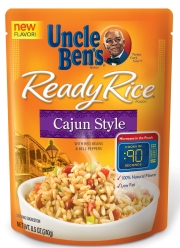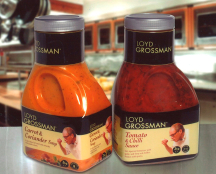Report: Nanotechnology needs environmental assessment
Smaller packages cause bigger appetites
Pringles declared not a potato crisp
Uncle Ben’s pouch gets a Cool Touch
UK foodservice soup in plastic bottles

by Pan Demetrakakes
Executive Editor
The search for the source of a salmonella outbreak, initially tied to tomatoes, that has sickened close to 1,000 people, has devolved into a lot of finger-pointing.
The Food and Drug Administration has backed off its early assertion that tomatoes were the culprit in the transmission of a strain of salmonella known as Saintpaul. That announcement led many retailers to pull certain varieties from their shelves in mid-June.
The FDA and the Centers for Disease Control (CDC) are continuing to focus their investigation on tomatoes. However, they are expanding it to include vegetables and herbs that are often consumed with tomatoes, especially in fresh salsa, such as cilantro, jalapeno peppers, serrano peppers, scallions and bulb onions.
The FDA continues to suspect Mexico, supplier of much of America’s out-of-season tomatoes, as the source of the infection. However, Mexican officials vigorously deny this. A Mexican agriculture official told Reuters that Mexico has not had any instances of salmonella in months, especially not the Saintpaul strain.
Howard Seltzer, director of the FDA’s Center for Food Safety and Applied Nutrition, was quoted in FoodProductionDaily.com as saying that it’s unlikely the FDA will find a “smoking gun” that will show definitely where the infection originated.
Representatives of U.S. growers and packagers are becoming impatient with the FDA’s performance and communication. Western Growers, an association of produce growers and packers, is calling on its website for a congressional investigation to “uncover ways the federal government can step in and compensate those innocent growers, packers and/or shippers who have been unfairly and adversely affected by FDA's mishandling of this outbreak.”
Officials of the United Fresh Produce Association and the Produce Marketing Association announced they received no response when they asked to meet with the Secretary of Health and Human Services, whose department oversees the FDA and the CDC. A follow-up letter signed by the presidents of both associations asserted that “the public is more confused than ever and consumer confidence in government health agencies is rapidly eroding.”
The associations are trying to protect their members, of course, but what they’re saying is certainly true. If the public perceives that the government can’t protect them from unsafe produce, they could make any number of adjustments: Packaged produce instead of bulk, organic instead of regular, or even little or no fresh produce at all. That would be a great misfortune, not just for the produce industry, but for consumers’ long-term health.
TOP DEVELOPMENTS
Report: Nanotechnology needs environmental assessmentThe Project on Emerging Nanotechnologies and the Grocery Manufacturers Association releasedAssuring the Safety of Nanomaterials in Food Packaging: The Regulatory Process and Key Issues, which reports on engineered nanoscale materials (ENMs). The report indicates, among other things, that ENMs can be used in several ways to treat plastic for barrier protection and antimicrobial detection or prevention. However, given the microscopic nature of the particles, an environmental assessment would have to determine whether an ENM will seep into the environment after the package is discarded, and what, if anything, would happen to animals and plants that get exposed to them.
Smaller packages cause bigger appetites
Smaller packages can lead consumers to eat more, according to a study in theJournal of Consumer Research. An experiment was conducted where students were sat in front of a television and given potato chips., They ended up eating nearly twice as many chips from nine small bags as from two large bags. This contrasted with the belief that people consume more junk food when it comes in larger packages.
Pringles declared not a potato crisp
A London High Court has ruled that, despite their labeling, Pringles cannot be taxed as “potato crisps,” since their potato content is only around 42%. While potato crisps is one of few food items to be charged under the United Kingdom’s value added tax (VAT), Pringles maker Procter & Gamble appealed, arguing that since the snacks are made from dough, and are designed and manufactured for stacking, they should be exempt from the VAT. The judge allowed the appeal, saying, “Pringles are not made from the potato.”

NEW PACKAGES
Uncle Ben’s pouch gets a Cool TouchUncle Ben’s rice from Mars Inc. is now available in a microwave-ready format with an added feature for safe consumer handling. Ready Rice is in a standup, bottom-gusset pouch that has been redesigned with Cool Touch technology-an enlarged area at the top of the pouch, above the notches on either side, that allow consumers to open the microwaved pouch without burning their fingers. “This is a small change, but very important because it enhances the consumers’ experience with our Uncle Ben’s products,” says Bryan Crowley, vice president of marketing and sales for Mars Food US.

A line of premium soups and sauces for foodservice in the United Kingdom comes in multilayer plastic bottles. Loyd Grossman soups are in distinctively shaped 2-kilogram bottles fromRPC Containers Corby. The polypropylene/ethylene vinyl alcohol/PP bottles allow the products to withstand in-bottle sterilization with a long ambient shelf life. Indentations on the side panel promote easy gripping, while the asymmetric shape allows for accurate pouring.
